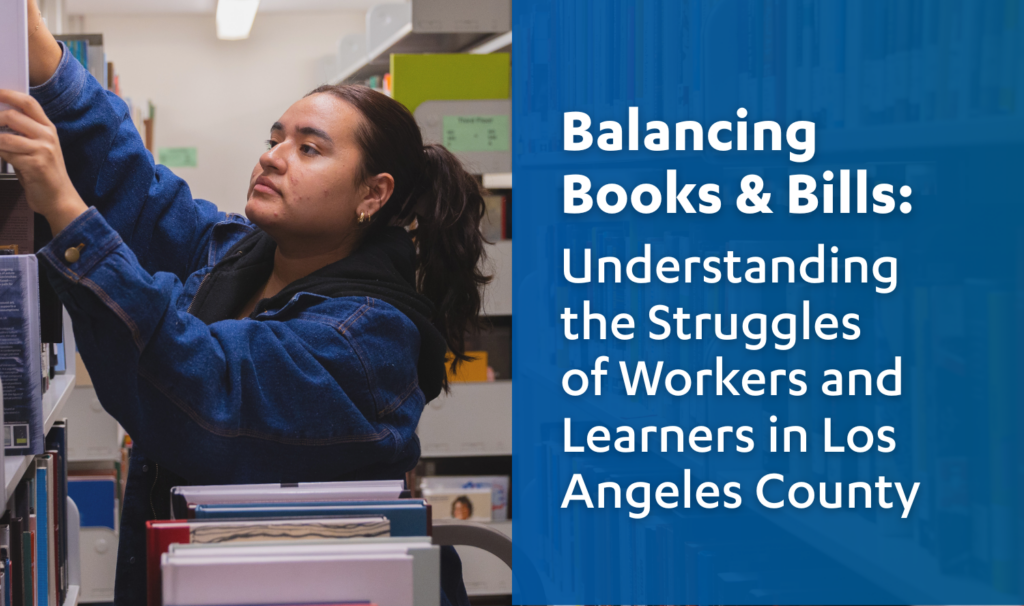
At the heart of Balancing Books & Bills: Understanding the Struggles of Workers and Learners in Los Angeles County are the voices of workers and learners, students balancing employment, academics, and personal well-being in an increasingly challenging economy.
Working while studying has recognized benefits, such as gaining professional skills and increased confidence, but also significant drawbacks, including prolonged graduation timelines, financial stress, and reduced academic performance (Carnevale, Smith & Melton, 2015; Kyle, 2017; Perna, 2010).
Consequently, students often resort to multiple jobs, incur debt, or reduce their coursework, jeopardizing their academic and career progress (Walizer, 2018). Without adequate support, balancing work and education adversely impacts student well-being due to rigid class schedules, insufficient financial aid, and weak workplace protections (UCLA Labor Center, 2020).
Through UCLA’s 2024 Labor Summer Research Program (LSRP), we center workers and learners as active knowledge producers, not merely research subjects. This study provides an interactive collection of data-driven insights, interviews, and firsthand stories illuminating systemic issues such as financial instability, inflexible schedules, and limited career alignment.
Authors recommend:
- Increasing flexibility in attendance and deadlines, improving communication between faculty and students, and expanding access to essential resources like recorded lectures would significantly enhance the experience of many workers and learners.
- Enhancing workers’ rights is another priority, as many participants lacked knowledge about fair treatment, legal protections, and union membership. Proposed steps include introducing mandatory educational modules on workplace laws and establishing help centers for individuals facing wage or scheduling disputes.
- Financial recommendations focus on making aid more accessible. This includes advocating for larger grants to cover gaps between living expenses and existing aid packages, expanding eligibility for work-study, and promoting financial literacy.
- Career advancement proposals ensure that students gain relevant job experiences. This may involve targeted internships, mentorship programs, and better access to career resources within every department.
